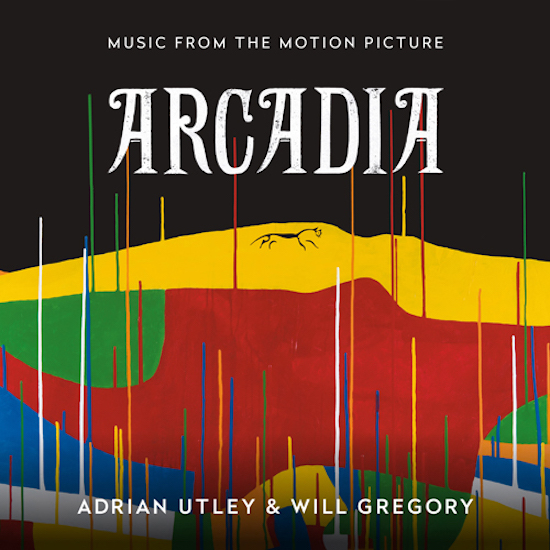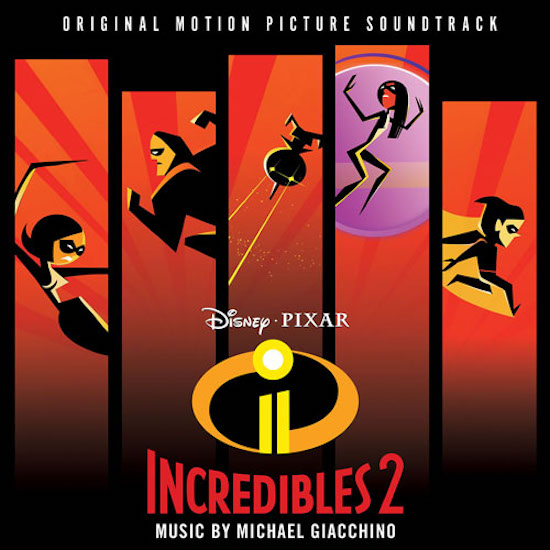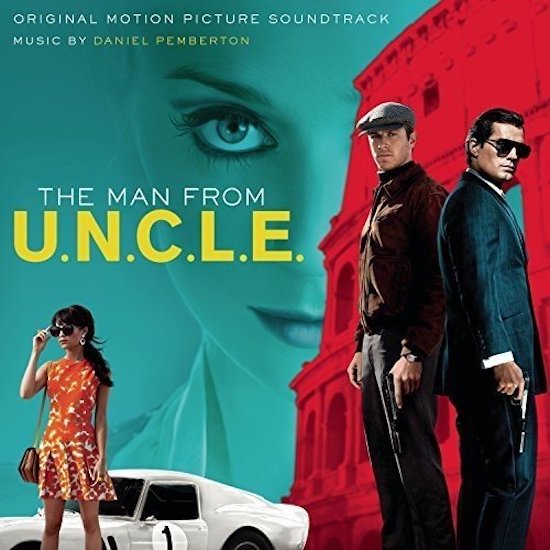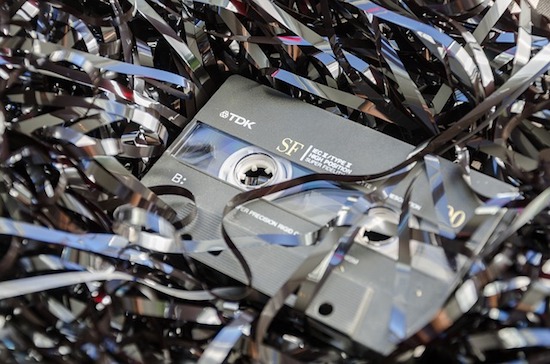Welcome back to Moviedrone, where we check out the newest film music releases and aim to make you appreciate the sounds of the cinema even more than usual.
FORMAT AND FUNCTION
One of the most vivid memories I have of my father shouting at me was when I was about eleven and I’d apparently woken him up in the middle of the night due to the TV being too loud. Now, while I understand his fury – if my kids did that to me now I’d probably be pissed – what he didn’t understand is that I was using the wee hours to further my appreciation of film music by holding a portable cassette recorder up to the TV speaker and recording the best bits of score from whatever it was, probably Star Wars. I eventually filled up a C60 full of main and end title cues from movies like Star Trek, Jaws, even Damien: Omen II (I still remember the Land Rover engine sounds over the music).
What this says is that I made do with terrible recordings and sound effects in order to enjoy this music, and I still loved that tape. Now where this came from is inevitably social media, namely Twitter. The great Clint Mansell tweeted the following statement about the quality of the sound of music versus the fabric of music itself:
"I grew up on cassettes recorded from the radio. I couldn’t give a fuck about format really – music transcends its medium."
It makes sense. Like Clint, I also recorded songs from the radio so spent a fair period of my youth wondering what certain tracks sounded like without Bruno Brookes interrupting the end of them. But it seems evermore today there are fierce debates about not only what the best way is to listen to something, but how something should sound. In terms of film music enthusiasts there’s no love lost between vinyl and CD fans, with vinyl fans sick of being told their music is full of "pops and clicks" and CD fans annoyed with the popularity of vinyl meaning that format has a certain amount of vinyl-only releases (the recent release of Bernard Herrmann’s Twisted Nerve was certainly a bone of contention). It’s like classical music, because of the nature of the music with the size of the orchestra and the delicate miking and so on, some will insist it can only be appreciated on 32-bit FLAC or something similar, while others are happy to listen to your average MP3, although even whether that’s variable bit-rate or a flat rate is somewhat controversial.
The thing is, where film scores are concerned the quality can only be as good as your source. It’s all very good where you have either new scores or re-recordings, which are presumably all recorded on digital multi-tracks or at least a source which matches modern fidelity. But then you start to go back to much older scores, many of which have only been released on short LPs back in the day. Some of these end up actually being mastered from vinyl due to a lack of original masters, while others were kept on acetate discs, and it’s really a credit to some of the engineers out there like Chris Malone and James Nelson who are able to get the best sound possible out of these archival recordings.
But it’s easy to forget that behind the bits and the mastering and the pressing is the music itself. I have some older scores that many would say are unlistenable due to the sound quality, but I can happily listen and love them because the music is so good and I’m not about to deny myself that pleasure because there might be some hiss and distortion.
I wish I still had that tape though.
NEW RELEASES

SICARIO: DAY OF THE SOLDADO (Varèse Sarabande, June 29) In James Cameron’s Aliens, there’s a scene where android Bishop has to crawl down a dark and seemingly never-ending pipe to get to a satellite dish. This is what Sicario: Day of the Soldado feels like to listen to; it’s intense, claustrophobic, and it rarely slows down to allow any breathing room. Hildur Guðnadóttir worked with the sadly departed Jóhann Jóhannsson on the first Sicario, and that oppressive atmosphere, a dirge if you will, is still present. The record is bookended with percussion, opening with these pounding drum rolls that wind you up and reach the pit in your stomach, feeling like the very beginning of a rollercoaster, fear and anticipation battling for emotional supremacy. Even as the ride ends it barely lets go of your guts and you’re left contemplating and reconciling what you’ve heard, your mind just trying to process the experience.

ARCADIA (Invada/Lakeshore, out now) From the moment you hear Anne Briggs singing sea shanty ‘Lowlands’ with accompaniment from composers Adrian Utley and Will Gregory you know this album is going to be special. The score is a rumination on Britain and its relationship to the land (for a new documentary by Paul Wright) and it feels like a cultural tapestry, with reflections of music from BBC documentaries of the 70s and 80s and the Radiophonic Workshop fusing with folk rock, a little D&B, and even a little horror music. This concoction makes for a strange brew at first, but keep on drinking, it’s absolutely worth it.

Checking in to HOTEL ARTEMIS (Lakeshore, out now) was a foregone conclusion, with the promise of another Cliff Martinez action/crime score, and of course he doesn’t disappoint. In a way this feels like Martinez auditioning for Michael Mann, with the tense atmospherics and the constant percussion that threatens to boil over perfect for his line of heightened drama, and he wouldn’t even need to get Moby this time. Martinez’s blurring and blending of instruments is so sophisticated and it’s put to great use here, with synth lines suddenly popping out of the fog and drawing you in to what feels like will probably be your end. But at least the music will be good.

It’s been fourteen years since we first met the Parr family, but Michael Giacchino has effortlessly slipped back into the fold for INCREDIBLES 2 (Walt Disney, out now). The swinging is even more swinging than ever, but there’s a deeper and more expansive tone, with the feel of the piece less John Barry and Bond and more Neal Hefti/Nelson Riddle and Batman (complete with similar vocal accompaniment for themes for Elastigirl, Mr. Incredible, and Frozone). The wit carries the many explosive moments and while it’s full of influence, it never sounds like a pastiche, which is incredible in itself. For latest spin-off movie from a galaxy far, far away SOLO: A STAR WARS STORY (Walt Disney, out now) Giacchino was replaced by John Powell with added help from John Williams himself, who wrote a catchy new theme for the title character. Powell certainly gets a ton of mileage out of it for his flamboyant and old-fashioned score, so it’s just as well that it’s very good. The composer still brings his thicker-than-gravy orchestration, and while it mostly works your enjoyment may depend on your tolerance for that.

Unfortunately there wasn’t much of an interest in the Spielberg blockbuster THE ADVENTURES OF TINTIN (Music On Vinyl, out now) but there definitely deserved to be more of an appreciation for John Williams’ inventive score. Here Williams uses his history of jazz for a faintly European feel as well as making it just damn good fun, especially the delightful ‘Snowy’s Theme’ with its persistent piano arpeggios and pitfalls. It’s hard to dislike THE MAN FROM U.N.C.L.E. (Music On Vinyl, out now) when it opens with Roberta Flack, but it’s Daniel Pemberton’s clash of European and American instruments and styles that’s the real draw here. Again it’s jazz that provides the base, with Pembs looking back to the smooth sixties spy style that broke out people like Lalo Schifrin, and he seems to easily be able to write those slinking melodies and thick grooves that wouldn’t be out of place in one of the James Coburn Flint movies or a grimy poliziotteschi thriller. Both of these come in MOV’s usual slick packaging (using the key art) and thick protective sleeves, and both pressings are uniformly excellent, with great clarity and depth. I will say I’m disappointed Tintin‘s inner sleeves are glossy paper so were full of static when I opened it, but it was taken care of with my gun quickly enough.



